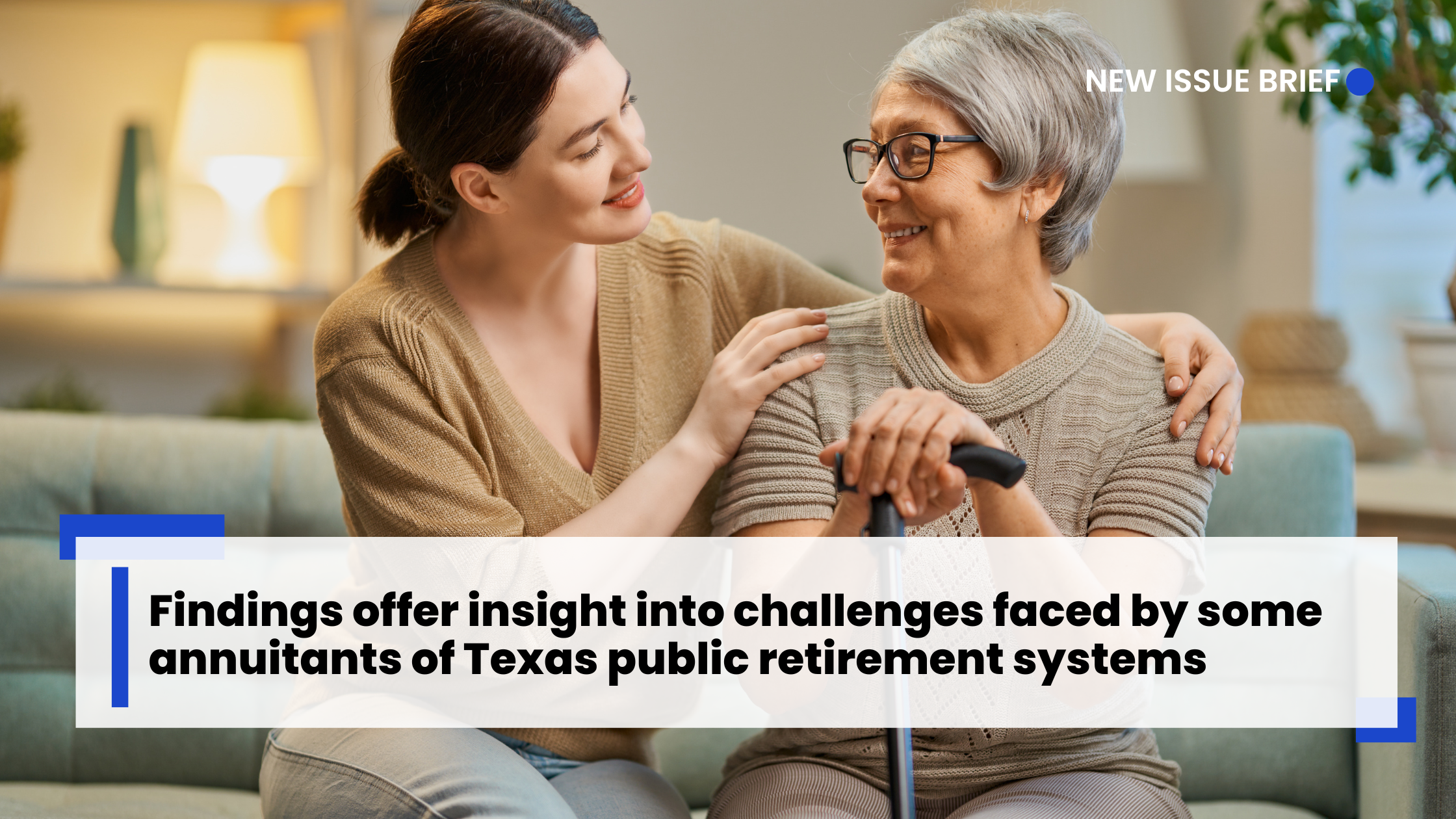The Employee Benefit Research Institute recently published an Issue Brief titled Shining a Spotlight on Caregivers in the Workplace: Findings from the 2023 Workplace Wellness Survey. The brief examines the retirement prospects, knowledge, preparations for retirement, and retirement experiences for unpaid caregivers versus those who do not provide this care.
This brief provides insight into the EBRI’s 2023 Workplace Wellness Survey. TEXPERS’ System Members might use its key findings to understand their annuitants better. The brief defines caregivers as those who provided unpaid care for an adult or child within the last 12 months in a noninstitutional setting and helped their care recipient with at least one or instrumental activity of daily living.
The key findings of the brief are:
- Caregivers are less likely to say that their health status is excellent or very good, are more likely to be female, are less likely to be White, and are more likely to be Hispanic than non-caregivers.
- Caregivers are more likely to have lower levels of financial assets and more likely to have a problem with debt than non-caregivers. Many are unprepared to handle a $5,000 emergency expense and claim prescription drugs and medical expenses as causes of stress. Three-quarters of those surveyed say they struggle to balance work and caregiving obligations.
- Caregiving workers and retirees report providing financial support to their caregiving recipients.
- The role and responsibilities of being an unpaid caregiver are more likely to harm the caregivers’ mental and physical health than the performance of specific financial tasks.
These findings might interest leaders of public employee retirement systems because they provide insights into unpaid caregivers' financial and health challenges. Public employee retirement systems may have a significant number of annuitants who are unpaid caregivers, and this information can help them better understand the needs of their annuitants.
For example, the finding that caregivers are more likely to have lower levels of financial assets and more likely to have a problem with debt than non-caregivers may indicate that public employee retirement systems need to provide more financial education and resources to their annuitants who are caregivers. Similarly, the finding that the role and responsibilities of being an unpaid caregiver are more likely to have a negative impact on the caregivers’ mental and physical health than on the performance of specific financial tasks may suggest that public employee retirement systems need to provide more health and wellness resources to their annuitants who are caregivers.
The 24-page report and other research are available at EBRI.org.
About the Author:Allen Jones is the director of communications and event marketing at TEXPERS. He joined the Association in January 2017. Contact him at [email protected].FOLLOW TEXPERS ON FACEBOOK, X (formally known as Twitter), AND LINKEDIN FOR THE LATEST NEWS ABOUT TEXAS' PUBLIC PENSION INDUSTRY.


